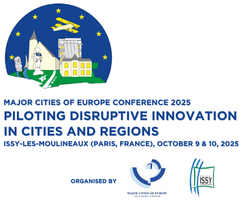
Newcastle launches UK’s first unified city Wi-Fi
10 September 2025
by Jonathan Andrews
Newcastle City Council has launched what it says is the UK’s first fully unified, city-wide public Wi-Fi network, aiming to move beyond the patchwork of hotspots and fragmented schemes common in other places.
The new service, delivered in partnership with Purple and supported by the UK Government’s Levelling Up programme, allows users to log in once and stay connected across the city centre and council buildings without repeated passwords or insecure connections.
A Newcastle City Council spokesperson told Cities Today that ConneX differs from other public Wi-Fi initiatives by being centrally managed and strategically funded.
“Newcastle’s ConneX stands apart through its unified governance, strategic public funding, and seamless implementation,” they said. “The network ensures consistent coverage and secure roaming, with infrastructure and analytics to support inclusion, sustainability, and economic growth.”
Coverage already extends through much of the city centre and across council buildings such as the Civic Centre, libraries and museums, with outdoor expansion ongoing. The council emphasised that the project is designed to help residents as well as visitors and students.
“This ensures that residents who may face challenges with mobile data costs can benefit from reliable, no-cost connectivity in key public spaces,” the spokesperson added.

Councillor Paul Frew, Newcastle City Council cabinet member for Resources and Performance, said in a statement: “Even with near-universal broadband coverage, not everyone can afford reliable access on the go. We’ve used government funding to improve our free public Wi-Fi offer to improve performance for residents, and this new partnership will enable us to further tackle digital poverty and give residents free access in more places.”
As part of the rollout, Purple is providing £120,000 worth of free Wi-Fi hardware and licences to 1,000 local SMEs, enabling them to offer customer connectivity and access digital insights.
“This support helps smaller businesses compete digitally, attract footfall, and improve engagement. Built-in reporting features will allow both businesses and the council to track usage and assess the economic impact over time,” the spokesperson added.
The network will also generate data on footfall, dwell time and usage patterns to inform planning, tourism strategies and service delivery. The council said this evidence-led approach offers a model other cities could adopt to link digital inclusion with economic development.
Image: Blunker | Dreamstime.com














